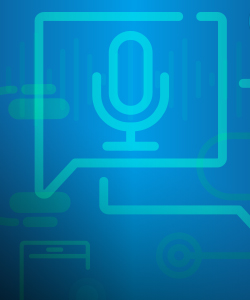February 7th, 2020
Podcast 251: Intermittent fasting
Podcast: Play in new window | Download
Subscribe: RSS
Intermittent fasting has salutary effects. Listen how Dr. Mark P. Mattson, co-author of a recent NEJM review on the topic, assesses the practice — and how he’s managed to skip breakfast for the past 30 years or so.
Dr. Ali Raja joins Joe as co-host again this time.
Links:
de Cabo and Mattson’s review in the New England Journal of Medicine
Michael Mosley and Mimi Spencer’s book “The FastDiet”
Running time: 18 minutes
Categories: Fasting, Intermittent fasting, Ketone bodies, Weight loss
Tags: eating, Mark Mattson, metabolism
You can follow any responses to this entry through the RSS 2.0 feed. Both comments and pings are currently closed.
7 Responses to “Podcast 251: Intermittent fasting”

About the Podcast
Comments, suggestions, and story ideas welcome. Learn more about Clinical Conversations.
Most Commented
- Podcast 256 — Anthony Fauci: Talking with patients about COVID-19 (27)
- Podcast 266: Interferon and early treatment in COVID-19 bring good outcomes (8)
- Podcast 251: Intermittent fasting (7)
- Podcast 214: Drug-drug interactions and bleeding risks with NOACs (6)
- Podcast 261: COVID-19 as a medical disaster (6)
Subscribe to Clinical Conversations via Email
-
Tag Cloud
- 2009 H1N1 acute coronary syndromes aspirin asthma blood pressure breast cancer cancer risk cardiovascular disease Cardiovascular risk COPD coronary heart disease dabigatran dementia depression diabetes Diabetes type 2 diet Elderly Emergency medicine epidemiology falls FDA glucose guidelines H1N1 Heart failure hypertension influenza pain Patient care patients pregnancy Prostate cancer prostate screening proton pump inhibitors PSA Quality of care risk Rivaroxaban screening smoking stents stroke vaccination warfarin




excellent podcast 251. i was wondering whether you can extrapolate the restricted feeding rules to diabetics? any advice on this please
I enjoyed the article and podcast. I exercise first thing in the morning and usually eat within an hour after eating. This pattern typically only gives me a 14 hour fast. I have tried to extend the time after exercise that I eat, but I do get irritable, hungry and have difficulty focusing. Do you know about any research that includes exercise and intermittent fasting from a practical standpoint?
I find IF more physiologic for me. It would be nice to find if there are differences for certain bodies and how to synch with them. Carbohydrates stimulate grazing in me, so I’m better avoiding them. Quiet and meditation help with unnecessary habitual and urge eating.
Many physicians try to rationalize seasonal and hunter-gatherer food availability and I think make assumptions they should not, but should stick to current findings, good research and application.
I have been doing intermittent fasting for 4 years and I have found it has improved my overall feeling. I also enjoy food more since I started. I practice mainly 16/8 .
Every few months I participate in a 5 day fast mimicking diet similar to professor Valter Longo’s diet. I find the fast mimicking diet gives a noticeable improvement in general health but obviously it is more difficult.
In both diets the urge to eat during the fasting period diminishes after a while
Good discussion, but must be tempered with the need for more clinical study.NEJM Journal Watch should remain a vehicle of serious inquiry and intelligent analysis. Be careful that your enthusiasm for this diet does not blind you to scientific inquiry. Moderators come dangerously close to becoming cheerleaders on this audio.
Huge questions remain regarding utility in diabetes or other metabolic conditions,arrhythmogenicity or cns effects of high serum ketone levels,etc. Even more mundane issues such as ketone’s impact on pharmacology of antihypertensives (typically taken in morningtime), advisability of reducing certain drugs like diuretics that contribute to hypovolemia, etc. need addressing. My two cents.
Where can I find the date this podcast was posted? Thanks.
It’s always to be found just above the episode’s title.